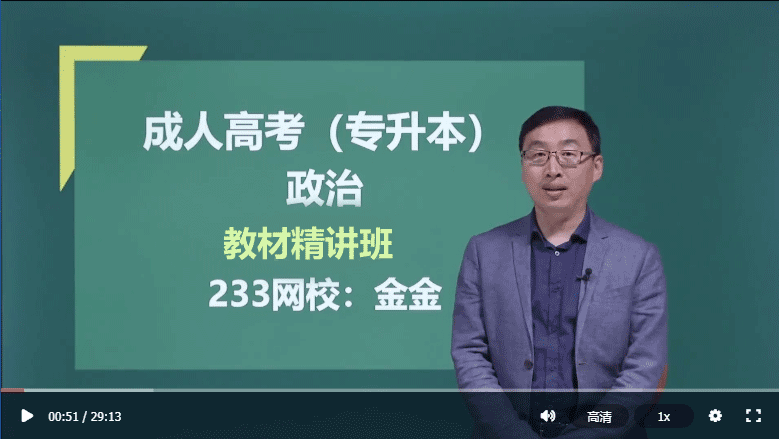1998е№ҙжҲҗдәәй«ҳиҖғе…ЁеӣҪз»ҹдёҖиҖғиҜ•иӢұиҜӯиҜ•йўҳ
еӣӣгҖҒйҳ…иҜ»зҗҶи§ЈпјҲе…ұ15е°ҸйўҳпјӣжҜҸйўҳ2еҲҶпјҢе…ұ30еҲҶпјүгҖӮ
йҳ…иҜ»дёӢеҲ—зҹӯж–ҮпјҢ然еҗҺж №жҚ®зҹӯж–Үзҡ„еҶ…е®№д»ҺжҜҸе°Ҹйўҳзҡ„еӣӣдёӘйҖүжӢ©йЎ№дёӯйҖүеҮәзҡ„дёҖйЎ№пјҢ并жҠҠе®ғеүҚйқўзҡ„еӨ§еҶҷеӯ—жҜҚеЎ«е…Ҙе·Ұиҫ№зҡ„жӢ¬еҸ·йҮҢгҖӮ
A
Dorothea Dix left home at an early ageвҖ“of her own free willвҖ“to live with her
grandmother.
At fourteen, Dorothea was teaching school at Worcester, Massachusetts. A short time after she had begun teaching, she get up a school for young girls in her grandparentsвҖҷ home. Stress was placed on moral character at DorotheaвҖҷs school, which she conducted until she was thirty-three.
She was forced to give up teaching at her grandparentsвҖҷ home, however, when she became ill, a few years of inactivity followed.
In 1841 Dorothea began to teach again, accepting a Sunday school class in the East Cambridge, MassachusettsвҖҷ prison. Here she first came insane people locked up together with prisoners.
In those days insane people were treated even worse than prisoners. There were only a few madhouses in the entire country. Therefore prisons, poor houses, and houses of correction were used to keep the insane.
Dorothea Dix made a careful investigation of the inhuman treatment of the insane. It was considered unfeminine for a woman to devote herself to such work at this time. But this did not stop Dorothea Dix from providing proper medical care for the insane.
Gradually, because of her investigations, conditions were improved. More than thirty mental institutions were founded or rebuilt in the United States because of her hard work. Dorothea also spread her investigations to England and to other parts of Europe.
During the Civil War, Dorothea served as superintendent of woman hospital nurses in the Union army. When the war was over, she returned to her work of improving conditions for insane people.
( )51. This article is mainly about .
A. social problems of the nineteenth century
B. how Dorothea Dix got her education
C. how Dorothea Dix devoted herself to education
D. how Dorothea Dix devoted herself to the work improving conditions for
insane people
( )52. How did Dorothea Dix first realize the mistreatment of insane people?
A. Her grandmother treated the mistreatment of insane people.
B. She worked in an insane hospital as a young woman.
C. She taught Sunday school in a prison.
D. She was asked to investigate the problem.
( )53. Which of the following statements about Dorothea Dix is best supported by the passage?
A. She spent time studying law.
B. Her grandmother was teacher.
C. She considered most insane well treated.
D. Many people believed that her work was not proper.
( )54. How are the events of Dorothea DixвҖҷs life presented in the passage?
A. In space order. B. In time order.
C. In alphabetical order. D. From greatest to least important.
B
It was Monday, Mrs. SmithвҖҷs dog was hungry, but there was not any meat in the house.
Considering that there was no better way, Mrs. Smith took a piece of paper, and Wrote the following words on it: вҖңGive my dog half a pound of meat.вҖқ Then she give the paper to her dog and said gently:
вҖңTake this to the butcher, and heвҖҷs going to give you your breakfast today.вҖқ
Holding the piece of paper in its mouth, the dog ran to the butcherвҖҷs shop. It gave the
paper to the butcher. The butcher read it carefully, recognized that it was really the ladyвҖҷs handwriting and soon did as was asked to. The dog was very happy, and ate the meat up immediately.
At midday, the dog came to the shop again. It gave the butcher a piece of paper again.
After reading it, he gave it half a pound of meat once more.
The next day, the dog came again exactly at midday. And as usual, it brought a piece of
paper in the mouth. This time, the butcher did not take a look at the paper, and gave the dog its meat, for
he had regarded the dog as one of his customers.
But the dog came again at four oвҖҷclock, And the same thing happened again. To the butcherвҖҷs more surprise, it came for the third time at six oвҖҷclock, and brought with it a third piece of paper. The butcher felt a bit puzzled. He said to himself, вҖңThis is a small dog. Why does Mrs. Smith give it so much meat to eat today?вҖқ
Looking at the piece of paper, he found that there were not any words on it!
( )55. Mrs. Smith treated her little dog quite .
A. cruelly B. kindly
C. badly D. unfairly
( )56. The butcher did not give any meat to the dog .
A. when he found the words on the paper were not very clear
B. because he happened to have sold out all the meat in his shop
C. before he felt sure that the words were really written by Mrs. Smith
D. until he was paid enough by Mrs. Smith
( )57. From its experience, the dog found that .
A. only the paper with Mrs. SmithвҖҷs words on it could bring it meat
B. the butcher would gave the meat to it whenever he saw it
C. a piece of paper could bring him half a pound of meat
D. Mrs. Smith would pay for the meat he got from the butcher
( )58. At the end of the story, you will find that .
A. the butcher found himself cheated by the smart animal
B. the dog was clever enough to write on the paper
C. the dog dared not go to the butcherвҖҷs any more
D. the butcher was told not to give any meat to the dog
C
Once there was a king who never ate a meal unless there was a dish of fish with it, but one day there was a big storm and the fishermen were not able to go out to catch fish, so the king had no breakfast and no lunch. Then he ordered his servants to tell everybody in his capital that if anyone brought him a fish, he would give him anything that he asked for.
At last, a fisherman caught a big fish late in the afternoon and hurried to the kingвҖҷs palace with it. But the kinвҖҷs Prime Minister would not let him in until he promised to give him half of whatever the king gave him for the fish.
The king was very happy when he saw the fish. He asked the fisherman what he wanted for his fish. To his surprise, the fisherman said, вҖңI want you to beat me two dozen times with a stick.вҖқ When the king began to beat him a dozen times, the fisherman jumped away and said, вҖңThat is enough for me. I promised the other dozen to your Prime Minister.вҖқ Then he told the king what has happened between the Prime Minister and himself. The king was very angry. He not only gave the Prime Minister the dozen hits. but also said, вҖңBecause you have been dishonest, you will not be my Prime Minister any more. The fisherman will take your place.вҖқ
( )59. The fisherman took his fish to the kingвҖҷs palace because .
A. the king had promised to give him whatever he wanted
B. the king was dying from hunger
C. he wanted to teach the Prime Minister a lesson
D. he wanted to be the Prime Minister
( )60. When the fisherman told the king what he wanted, the king .
A. was very happy B. was very surprised
C. was very angry D. gave him what he wanted at once
( )61. Which of the following sentences is true?
A. The king wanted to make the fisherman king.
B. The king had nothing to eat for one whole day.
C. The king ate a fish every day.
D. The king was quite hungry when the fisherman came.
( )62. The king got rid of his Prime Minister because .
A. the fisherman was cleverer than his Prime Minister
B. the Prime Minister did not know how to catch fish
C. the Prime Minister was not an honest man
D. the Prime Minister took half of what the king gave the fisherman
зӣёе…іжҺЁиҚҗ
- 2017е№ҙжҲҗдәәй«ҳиҖғй«ҳиө·зӮ№иӢұиҜӯиҖғиҜ•жЁЎжӢҹиҜ•йўҳеҸҠзӯ”жЎҲжұҮжҖ»03-27
- 2017е№ҙжҲҗдәәй«ҳиҖғй«ҳиө·зӮ№иӢұиҜӯиҖғиҜ•жЁЎжӢҹиҜ•йўҳеҸҠзӯ”жЎҲдёү03-06
- 2017е№ҙжҲҗдәәй«ҳиҖғй«ҳиө·зӮ№иӢұиҜӯиҖғиҜ•жЁЎжӢҹиҜ•йўҳеҸҠзӯ”жЎҲдәҢ03-06
- 2017е№ҙжҲҗдәәй«ҳиҖғй«ҳиө·зӮ№иӢұиҜӯиҖғиҜ•жЁЎжӢҹиҜ•йўҳеҸҠзӯ”жЎҲдёҖ02-20
- 2017е№ҙжҲҗдәәй«ҳиҖғй«ҳиө·зӮ№иӢұиҜӯиҖғиҜ•еҹәзЎҖз»ғд№ иҜ•йўҳеҸҠзӯ”жЎҲдёҖ11-30
| ҝОіМЧЁТөГыіЖ | ҪІКҰ | ФӯјЫ/УЕ»ЭјЫ | Гв·СМеСй | ұЁГы |
|---|---|---|---|---|
| УпОД(ёЯЖрөг)ҫ«ҪІ°а | өЛҫэГД | ЈӨ150 / ЈӨ150 |  |
ұЁГы |
| УўУп(ёЯЖрөг)ҫ«ҪІ°а | Monica | ЈӨ150 / ЈӨ150 |  |
ұЁГы |
| КэС§(ОД)ҫ«ҪІ°а | Нх·ј | ЈӨ150 / ЈӨ150 |  |
ұЁГы |
| КэС§(Ан)ҫ«ҪІ°а | ВЮУЧЦҘ | ЈӨ150 / ЈӨ150 |  |
ұЁГы |
| ҙуС§УпОД(ЧЁЙэұҫ)ҫ«ҪІ°а | Е·Сф°ШБШ | ЈӨ150 / ЈӨ150 |  |
ұЁГы |
| УўУп(ЧЁЙэұҫ)ҫ«ҪІ°а | Monica | ЈӨ150 / ЈӨ150 |  |
ұЁГы |
| ёЯөИКэС§(Т»)(ЧЁЙэұҫ)ҫ«ҪІ°а | НхМО | ЈӨ150 / ЈӨ150 |  |
ұЁГы |
| ёЯөИКэС§(¶ю)(ЧЁЙэұҫ)ҫ«ҪІ°а | ВЮУЧЦҘ | ЈӨ150 / ЈӨ150 |  |
ұЁГы |
ёЁөјҝОіМ
- ёЯЖрөг-КэС§(ОДК·ІЖҫӯАа)

- Нх·јАПКҰ
 Гв·СКФМэ
Гв·СКФМэ
- ёЯЖрөг-УўУп

- MonicaАПКҰ
 Гв·СКФМэ
Гв·СКФМэ
- ЧЁЙэұҫ-ҙуС§УпОД

- Е·Сф°ШБШАПКҰ
 Гв·СКФМэ
Гв·СКФМэ
°ај¶ҪйЙЬ
МЧІН°ьә¬ЈәЧЁЙэұҫVIP°а/ёЯЖрөгVIP°аЈЁә¬ҫ«ҪІ+ХжМвҪвОц+ДЈҝјөгМв)
МЧІНУЕКЖЈә1ЎўЛш¶ЁәЛРДҝјөг
2ЎўҝјЗ°·ў·Е2МЧКФМв
3ЎўГв·СЦШС§Т»ҙОұЈХП
ЕдМЧ·юОсЈә1ЎўГв·СМвҝв
2ЎўҝОіМҪІТе+ҝОјюПВФШ+ТЖ¶ҜҝОМГ







 Гв·СКФМэ
Гв·СКФМэ 




